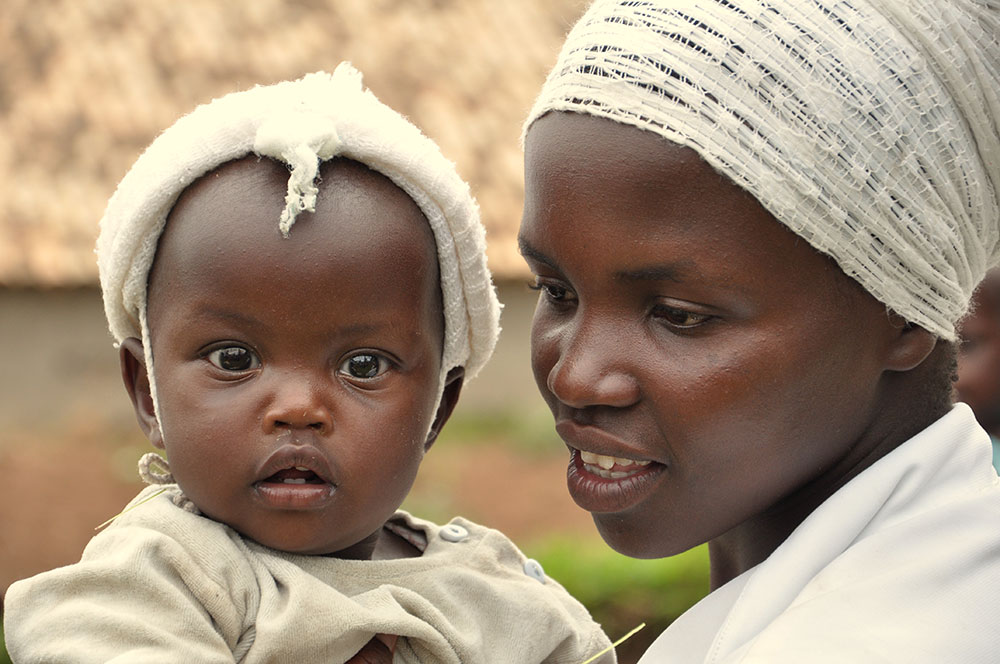Back to School
It all started when Carolyn Woo, our former dean who is now the CEO of Catholic Relief Services (CRS), told me that I needed to understand more about the plight of people in developing countries and the challenges faced by those who are the poorest and most vulnerable. She said I needed to understand how business can help these countries move forward, which is the mission of Mendoza College—business as a force for good. Carolyn wanted me to appreciate how much developing countries need business expertise to develop in sustainable ways.
When she suggested I travel with one of the BOTFL groups, I thought, “What the heck. Why not just enroll in the course?” And by that, I mean I would sit in on all the class sessions and try to do all the homework.
Very seldom does my day end with a work-related dinner conversation with my spouse. But I found out that more often than not, Tuesday and Thursday evenings, we’d talk about what happened in class. The readings and class discussion were so different from anything that I’d ever done. I’m an accounting professor. I teach structured courses—corporate financial reporting and sustainability accounting and reporting. I find these subjects thought-provoking, but they’re not designed to ask the big questions: What is poverty? What is self-respect? What is corruption? What are the roles of laws and compassion? I think I’m an educated person, but I hadn’t thought deeply about these issues. It was fascinating.
What was even more fascinating and inadvertently intimidating were these students. Their backgrounds were so superior to mine in these conversations. Just as an aside, I’m 67. I was within one year of being twice as old as the oldest MBA student. They have very different perspectives than I’ve ever had. It gave me an enormous amount of respect for the deep knowledge that our students have. In order to understand the context of developing countries, how people interact with each other, and the struggles they face, we needed to have conversations about very different things than accounting principles, rules and procedures.
Homework included reading The Bottom Billion, which is about the lives of the people at the bottom of the pyramid. We also read encyclicals from Pope Leo XIII and Pope Benedict. Additional assignments included Catholic teachings on poverty, human rights and the distribution of wealth, and UN General Assembly reports on human trafficking. This wasn’t easy reading.
My team—four Notre Dame MBAs, a law student and a peace studies graduate student— was assigned to a project sponsored by CRS. Every Thursday morning, we would Skype with the CRS staff in Rwanda. We were defining the problem to be addressed, drafting a Scope of Work document and fine tuning our in-country schedule. So that when we hit the ground, we knew exactly what we were doing.
The problem we addressed was nutrition activities for children under age 5. We agreed to review how messages about nutrition were being delivered to the Rwandan people. Malnutrition is a huge issue. People eat, they’re not starving, but their diet is problematic. Poor families fill up on root vegetables—especially cassava, which isn’t high in nutrients. Stunted growth in children is a big problem, one that has to be addressed in the child’s first thousand days—meaning from conception to two years—or it’s too late. Children won’t reach normal height and weight. Organs won’t fully develop. It can compromise their immune systems, affect their intelligence and shorten their lives.
We traveled to Rwanda for two weeks during Mendoza’s MBA interterm session and spring break. CRS works with community health workers to address nutrition
and other issues. We split up into groups of three. My group spent time in a village shadowing a community health worker. Mothers brought children to her house to be measured and weighed. She kept track with a pencil on a big spreadsheet like I used to do in accounting courses when I was an undergrad. She would take the child’s height and weight, measure the wrist, the length of the arm from the shoulders to the elbow, and the waist. She could tell from those metrics if the child was suffering from malnutrition. And if so, she sent the child’s mother to the hospital to obtain a special formula.
While in the field, I came to understand how important it is to have interviewing skills. You can easily download a lot of data about poverty from the Internet. But in the field, you need to know how to observe, how to ask questions. If you’re interviewing someone, you want to come away with a story. You have to be connected on the same level to get answers that are insightful.
It was a great experience. It was a wonderful opportunity to better understand the way the world is now. We can’t pretend we don’t know what’s going on in the Democratic Republic of the Congo, or Somalia, or any place. As pointed out by Thomas Friedman, the world is flat. We are all connected in a single global network.
On my desk sits a National Geographic-quality photo of a woman I met in Rwanda. She’s holding her infant son, who is suffering from malnutrition. Her eldest son, no more than 10 years old, travels many kilometers several days a week to fetch water that he carries home in a plastic container held by one arm and carefully balanced on his head. This photo serves as my constant reminder of those struggling throughout the world and a call for me to be part of the solution. A call that is heartfelt and timely as I now consider how best to serve others.


Comments